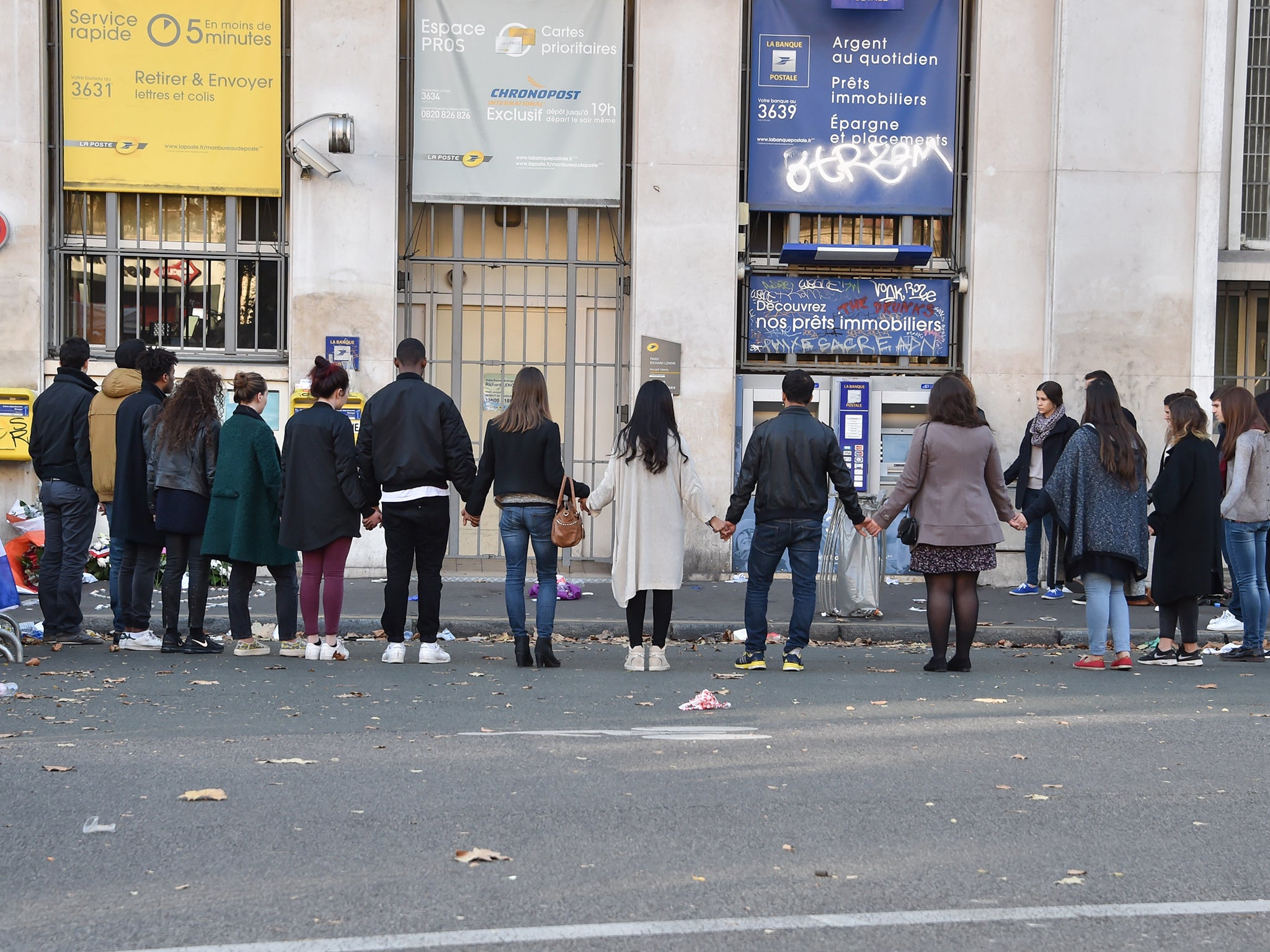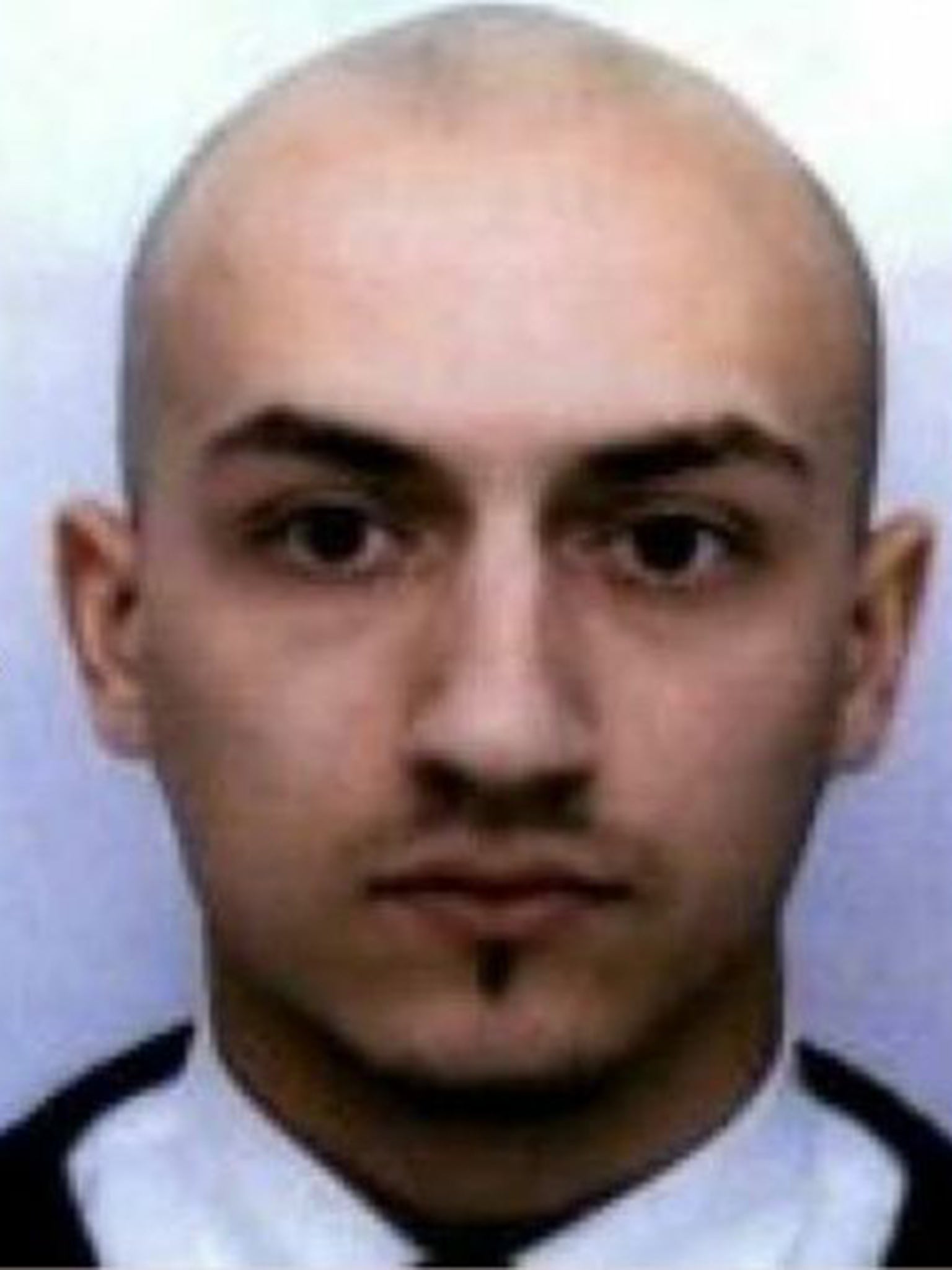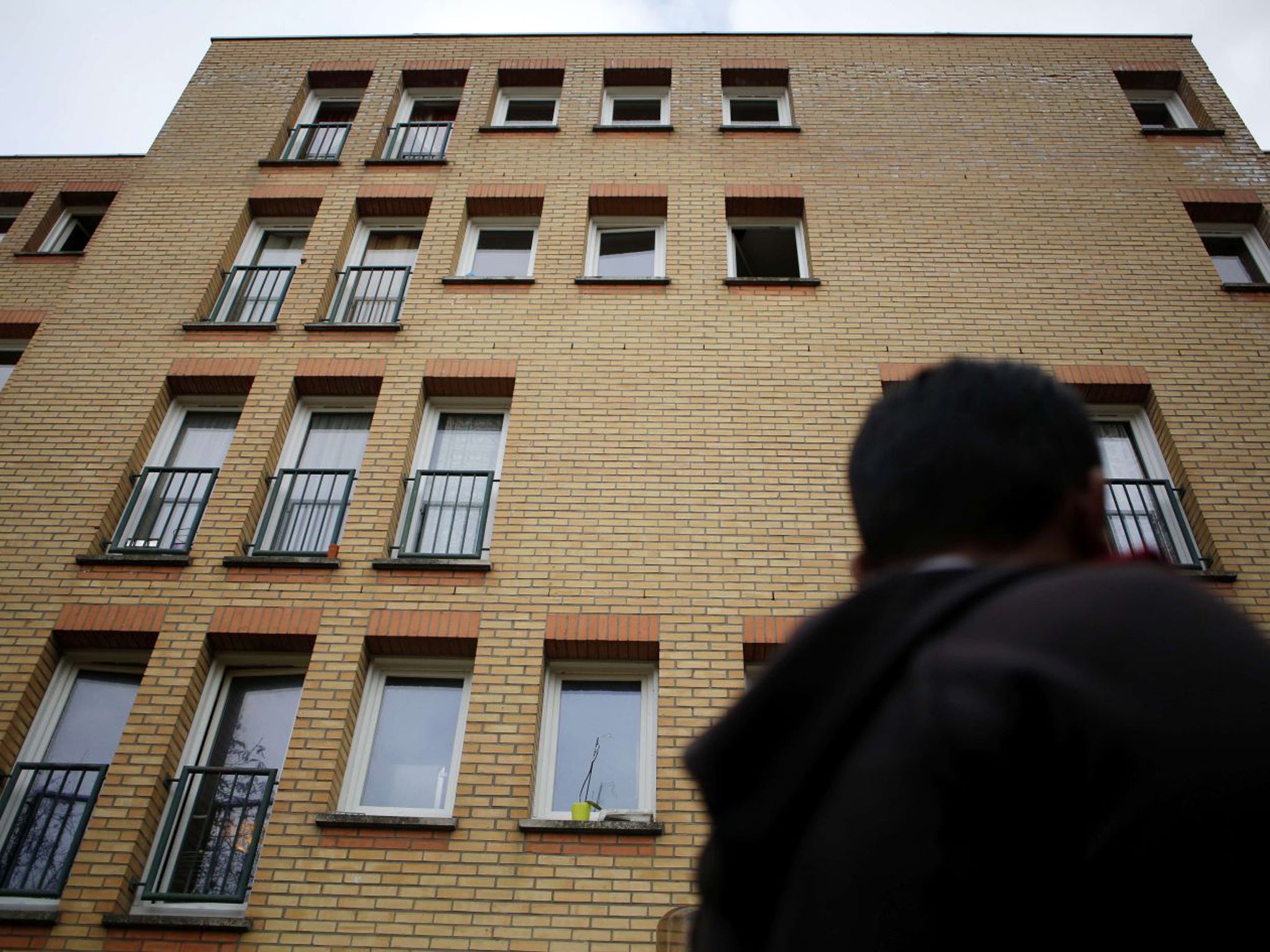Paris terror: Fear mingles with bewilderment as home town of Bataclan theatre bomber pays its respects
Sami Amimour, 28, who had grown up in Drancy, detonated a suicide bomb in the theatre

They gathered, like so many other French communities, outside the town hall to honour the dead. But as the residents of Drancy, a quiet town north-east of Paris, paid their respects in silence, they did so in the knowledge that among the attackers had been one of their own. Sami Amimour, 28, who had grown up in Drancy, had detonated a suicide bomb in the Bataclan theatre.
As the crowd dispersed, attention turned to a seemingly peaceful estate of five-storey brick buildings just behind the town hall. And in particular to a third-floor flat, its door boarded up after the 7am raid in which it is thought Amimour’s mother and teenage sister were taken away for questioning by police.

“There were loads of armed police,” said a 63-year-old neighbour who lives just down the corridor. “They were yelling at us to shut our door and stay inside.” Mingling with the fear in Drancy was a sense of bewilderment.
The neighbour’s daughter had grown up with Amimour, playing with him as a child. “He was just a normal kid,” she said, “Laughing, playing football with the other boys in the square. He was the nicest, most sociable member of that family. It’s hard to understand how he could kill.”
The sense of a normal lad was merely reinforced by their recollection that when he was about 22, Amimour, from a working class family of Algerian extraction, had worked as a bus driver. Yet somehow he had become radicalised, slipping out of France in the autumn of 2013, joining Isis and becoming the subject of an international arrest warrant. The neighbour was sure of only one thing: “You can’t blame the parents. What could they have done?”

It seems, in fact, that they tried everything. In an interview given to the French newspaper Le Monde in December last year, Amimour’s father said that in the summer of 2014 he had travelled into Isis-controlled territory in Syria in a desperate attempt to persuade his son to come home. He was received coldly by his son, who was accompanied at all times by an equally hostile minder. The father insisted on giving his son €100 and a letter from his mother. The money was returned with the insistence that it was not needed. The letter had no effect.
Amimour instead tried to convert his father to the cause, showing him “disgusting” videos of torture supposedly committed by forces loyal to Syria’s President Bashar al-Assad. The father left after two days, but in December, when he spoke to Le Monde – using a pseudonym in the place of his son’s name – he said he planned to return to Syria, with his wife, to try again.
Now, of course, it is too late. And now, too, it is hard to tell what is rumour, what is fact, what the neighours know, and what they know but are afraid to say.
At first the childhood friend was adamant that she had bumped into Amimour in the lift of their block of flats in 2014, even though by then he was being hunted by security forces and the subject of an international arrest warrant. This time, Amimour was far from friendly. “He was dressed in a white Islamic robe, and he completely blanked me.” Later she insisted that she must have been mistaken, and seen Amimour before he went to Syria – a recantation that was immediately contradicted by a man in his twenties, who insisted: “I definitely saw him a year ago.”

This is a town, many locals tell you, that is little troubled by crime, that prides itself on its friendliness and sense of community. Not a breeding ground for terrorists. But perhaps there were glimpses of something darker, at least in Amimour’s corner of Drancy.
Amimour, they say, had been friendly with another family living on the ground floor of his building, who had moved out after being raided by police on suspicion of drug dealing. Some raised questions about what had been happening in the Amimour family. One woman said that Amimour’s father had left the family home as much as 15 years ago to work in Belgium, visiting his wife and three children only occasionally.
Others insisted the father had moved out after constantly clashing with his son due to his radicalisation. For Amimour’s mother there was universal sympathy. “She is such a lovely, honest woman,” said another neighbour. “She got on well with everyone.”
Amimour’s older sister, said the neighbour, had gone to live in China. Amimour’s mother, she said, was left alone for long periods to care for the boy and his younger sister, thought to be about 15 now. “She did odd jobs, but she never asked for anything. It destroyed her when her son left for Syria. She is a woman whose life has been ruined.”
Join our commenting forum
Join thought-provoking conversations, follow other Independent readers and see their replies
Comments
Bookmark popover
Removed from bookmarks